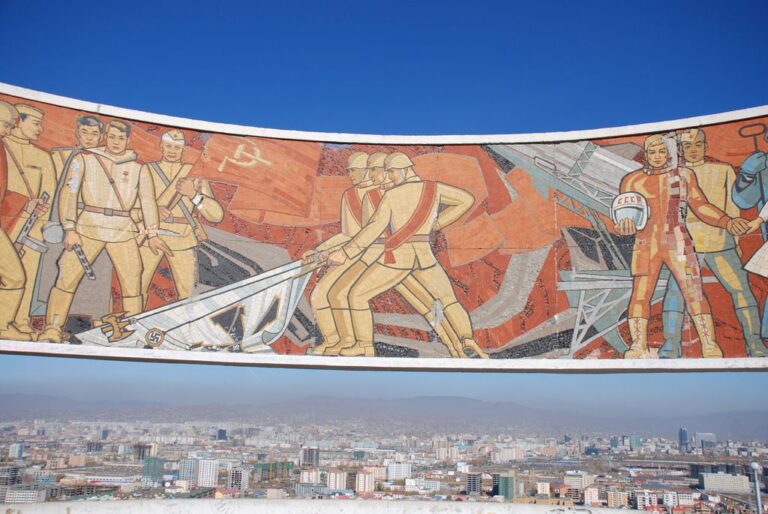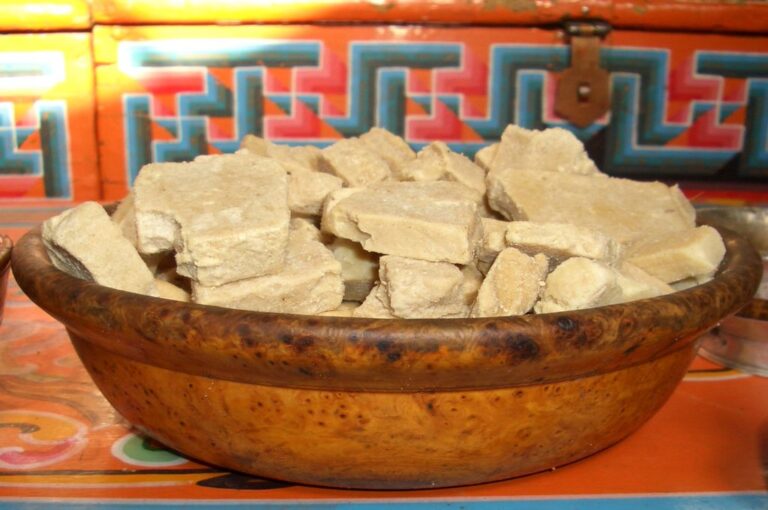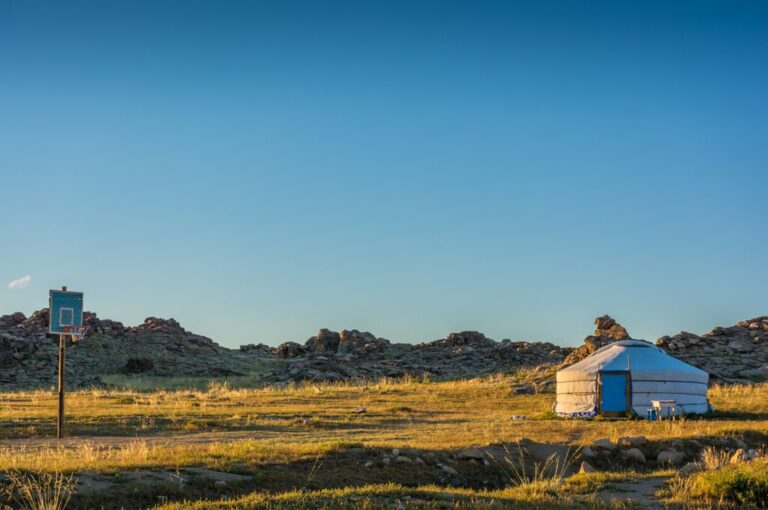Our first journey to Mongolia felt like stepping into a country where time stood still, and the vast landscapes whisper tales of nomadic traditions and untamed beauty. As you plan your adventure to this unspoiled gem in Central Asia, you probably wonder: How expensive is traveling in Mongolia?
In this blog post, we’ll break down all the costs we’ve made during our 4 weeks in Mongolia. From accommodation and transportation to meals and activities, we’ll provide a straightforward analysis to help you budget effectively for your Mongolian adventure. No frills, just the facts you need to plan your journey without any financial surprises.
Table of Contents
Just to keep in mind, at the time we were trraveling in Mongolia we were on a one year world trip. It was a once in a lifetime experience and were aiming to travel as much as possible without breaking our whole bank account. We managed to travel for 13 months with an average daily cost of 70 euros (for two persons). This 70 euro a day includes every daily cost except for international flights or other transport methods that implies crossing borders. We were very miticulous and took our budgetting to the next level. Every day we carefully wrote down all of our expenses and tried to estimate how costly each country would be. In Asia we aimed to spend less than 70 euro allowing us to have enough head room for more expensive countries like Australia and New-Zealand.
Total travel costs in Mongolia
- We stayed 29 days and spent: 1.717€
- Our daily average for two persons: 59,20€
- Exchange rate: 1€ = 3.500 tugriks
Here is our breakdown of our Mongolia travel costs:
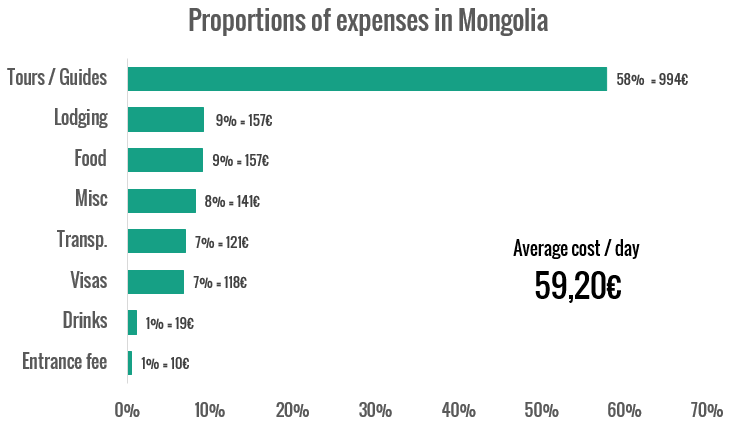
Tours & guides
We did an 11 day Gobi and Orkhon tour. This was our largest cost in Mongolia. We have to say that this category is inflated because the tour was all inclusive and included all food, accommodation, entrance fees and transport. It may look like a lot of money to book a tour, but it was the best option and most memorable thing we did back there. Seeing the Gobi desert, sleeping in traditional Mongolian tents (yurts) and being welcomed by Mongolian families is an experience we will never forget.
Accomodation
We spent 11 days in an airbnb in Ulaanbaatar for 15 euro/day, which was cheaper than staying in a youth hostel. We also managed to keep the costs for accommodation low by camping at the Khovsgol lake and taking night buses (sleeping + transport in one).
Food
Another advantage of staying in an Airbnb was that we had our own kitchen, so 90% of the meals were cooked by ourselves. Not a bad option when knowing the reputation of Mongolian food.
Misc
We had to think of a solution to go camping and not freezing our toes off in the tent (as it was sometimes below zero degrees at night). So we did some research. It turned out that Mongolia is known for its good quality cashmere and merino wool, and it’s half the price of what we would have paid in Belgium. For 100 euro we bought two cashmere long underpants, 2 hats and 2 pair of merino wool socks. It was the best investment we did.
Transport
In Mongolia every car is a potential taxi, just put your hand up next to the road and after 1 minute a driver stops to pick you up. You pay 1000 MNT/km, a good deal if you have to get to the train station with your heavy backpack on your shoulders.
Visas
Mongolian visas are 60 euro per person for 30 days. You apply and pick them up at your embassy (preferably in person). For Belgium this is located in Brussels. It takes about 5 working days processing time before you can collect the visa.
Adress in Belgium: Embassy of Mongolia, Avenue Besme 18, 1190 Forest in Brussels
Drinks
Drinks in Mongolia are cheap (~1€ for 500ml beer), but no excuses, we need to crank this category up :)!
Entrance fees
Probably because Mongolia is not yet that touristic prices are very reasonable or free. Expect to pay 2 euro to enter a museum and most of the other big sights are free (like Zaisan, Sukhbaatar square, Chinggis statue).
Bonus: interested in how your life would be when you were born in Mongolia?
Living in Mongolia
Mongolia is a land of extremes, not only in its cuisine, nature and culture, but also economically. In comparison to Belgium there is 30% more of a divide in classes and inequality in income. We have to admit that we felt the divide. For instance our airbnb host was unemployed, had a child to raise all by herself and we never saw her having breakfast or a decent meal. On the other hand next to the apartment block there was an event hall where three times a week the parking lot stood full with expensive jeeps, Mercedes, etc. And just 10 km out of Ulaanbaatar people live in gers with a toilet that’s just a hole in the ground and a plank of wood covering it. Below, you can find a comparison between living in Belgium and living in Mongolia:
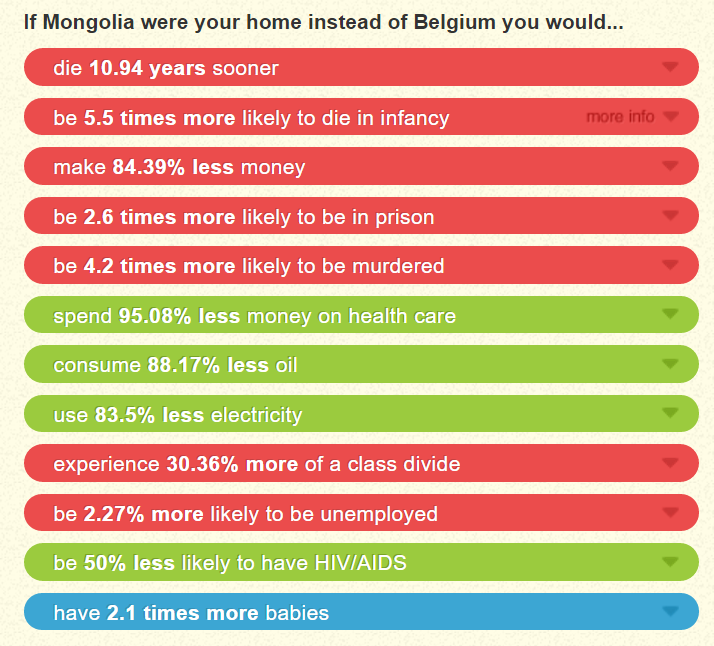
Do you have any questions about traveling in Mongolia, do not hesitate to leave a comment! We are glad to help!
